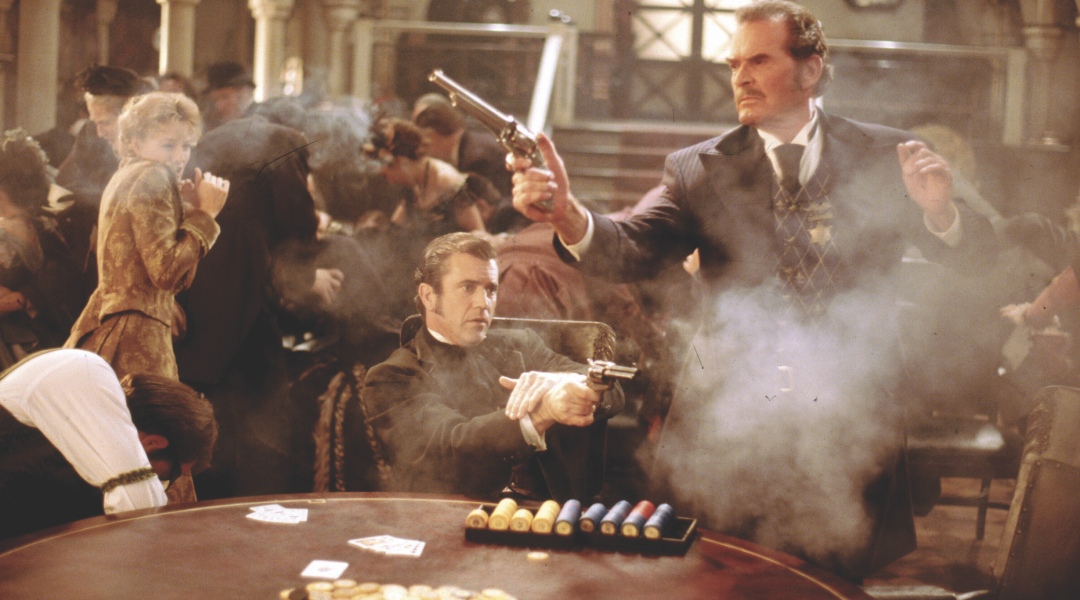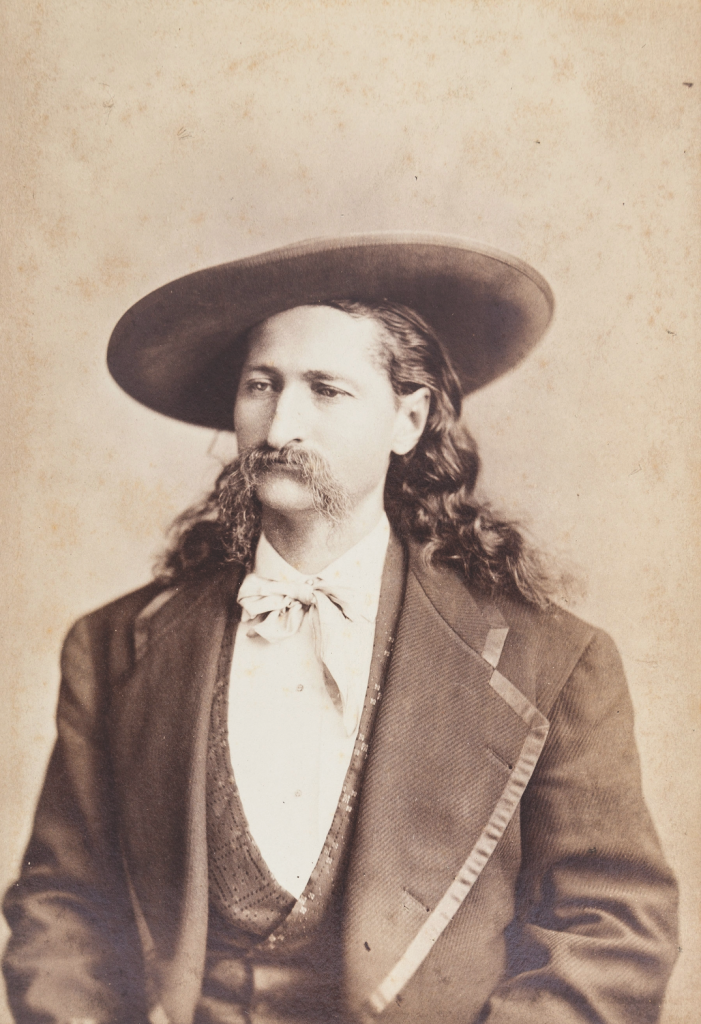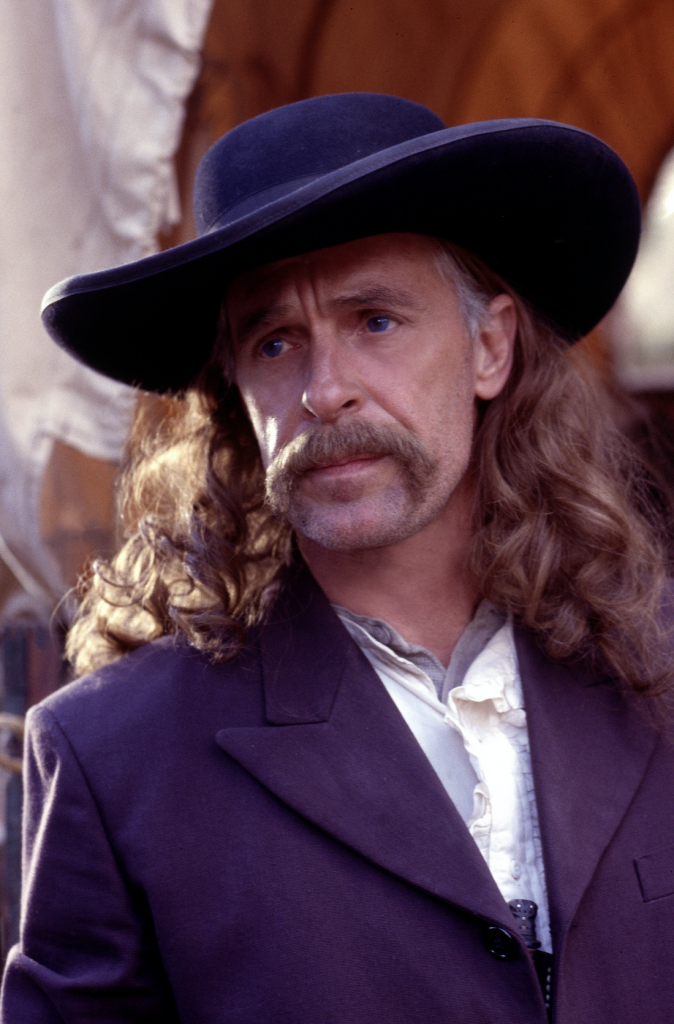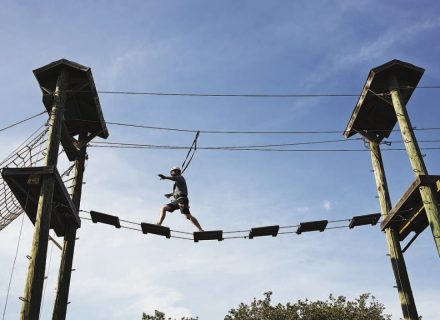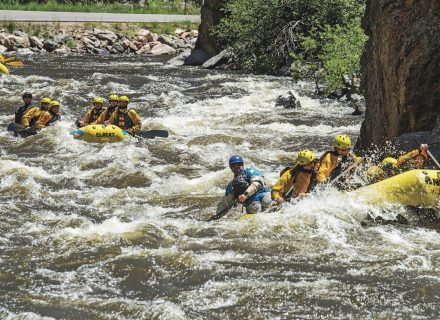A brief rundown of famed poker players of Western lore and screen.
Fifty years ago, Las Vegas casino maven Benny Binion launched the poker tournament that would evolve into the World Series of Poker. About 30 players showed up for those first deals, among them many legends of the game: Jimmy “the Greek” Snyder, Doyle Brunson, “Amarillo Slim” Preston, and Johnny Moss.
In addition to helping popularize poker as a televised spectator sport, Binion also fortified the connection between poker and the saloons and gambling halls of the Old West, where disputes over a pot were settled with a six-shooter.
Had Wild Bill Hickok still been around when Benny Binion started the World Series of Poker, he’d have certainly been among those ready to ante up.
“He was an excellent poker player,” says Hickok biographer Tom Clavin, author of Wild Bill. “He had to be because for much of his life he earned a living from it. If Bill had ever been asked to file a tax return, he would have listed gambler as his primary occupation.”
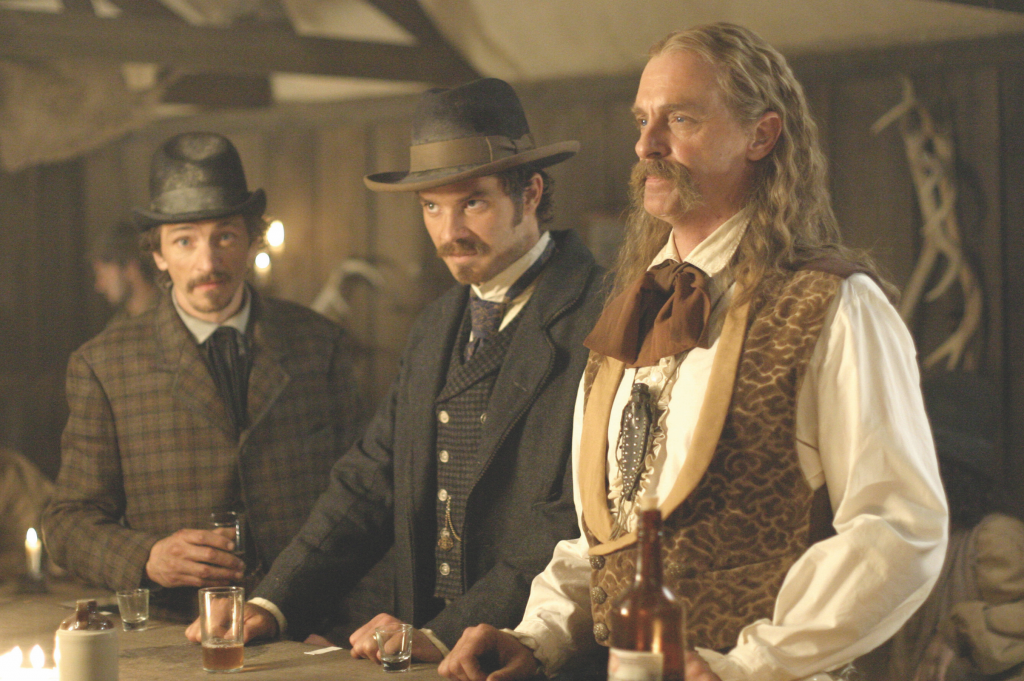 John Hawkes, Timothy Olyphant, and Keith Carradine in Deadwood
John Hawkes, Timothy Olyphant, and Keith Carradine in Deadwood
Sadly, Hickok’s last poker game happened on August 2, 1876, when Jack McCall shot him in the back in Deadwood’s Nuttal & Mann’s Saloon. The moment ranks among the most infamous in Western lore and has been re-created several times by Hollywood. Hickok was played by Jeff Bridges in Wild Bill (1995), by Sam Elliott in Buffalo Girls (1995), and by Keith Carradine in the HBO series Deadwood.
And all of those scenes would have ended differently had Hickok been in his accustomed seat with his back to the wall. “Jack McCall was lucky that day,” Clavin asserts. “Seated elsewhere, and even with failing eyesight, Bill would have seen danger approaching and had at least a decent chance of drawing his pistol while a shaky McCall was producing his. However, I think seeing he had no advantage, McCall would have had just the whiskey and walked out.”
Who played the famed shootist best? Clavin is partial to Gary Cooper in The Plainsman (1936): “He was tall and slender and had a mixture of sophistication and folksiness.”
As for the aces and eights purportedly in Hickok’s hand when he was shot, Clavin accepts the account of what has become known as “the dead man’s hand”: “There are several contemporaneous accounts of the killing. Of course, they could all be wrong, but enough cited aces and eights [and a queen] that I felt comfortable going with it.”
That works for Deadwood History Inc., which claims to have the actual cards on display. Dairy farmer Richard Stephens was delivering buttermilk to the saloon when Hickok was shot, and allegedly took the cards in the ensuing confusion. His descendants donated them to the city’s Adams Museum in the 1960s.
Next to Wild Bill Hickok, the most renowned card shark of the Old West may have been Alice Ivers. Born in England and raised in Virginia, Ivers learned the game from her first husband and became adept enough to support herself on winnings after he passed away.
Ivers’ life was as colorful as Hickok’s: She broke the bank at New Mexico’s Gold Dust Gambling House, winning $6,000 in one night. She eventually opened her own poker saloon and bordello, using her trusty .38 pistol to dissuade rowdy behavior.
Surprisingly, given the rich material it provides, Ivers’ story has been dramatized only once, when Elizabeth Taylor played her in the 1987 TV movie Poker Alice. It’s breezy and fun but a staggeringly inaccurate take on a fascinating lady — they didn’t even get her last name right. But it’s still worth a look until someone tries again, hopefully with Hayley Atwell as Alice.
The Three Best Poker Scenes In Westerns
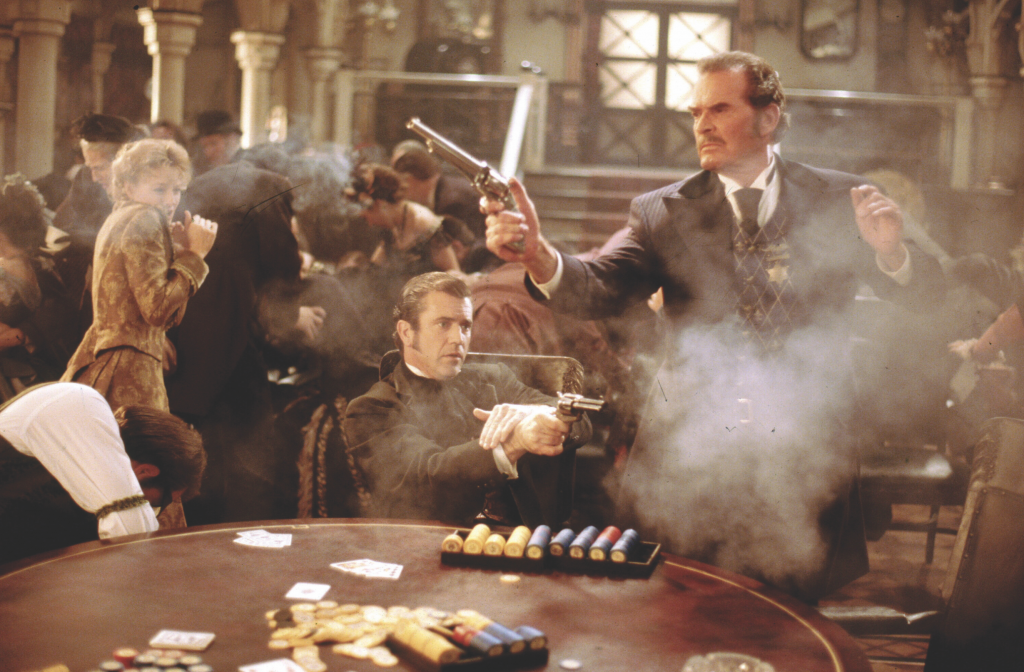 Mel Gibson and James Garner in Maverick
Mel Gibson and James Garner in Maverick
Maverick (1994)
We could choose the climactic poker game, shot with the intensity of a Main Street showdown, but even better is an earlier scene when Bret Maverick (Mel Gibson) is allowed to join a game only after promising to lose for the first hour. When Maverick finally starts winning pots, he faces another challenge from gunfighter John Wesley-Hardin.
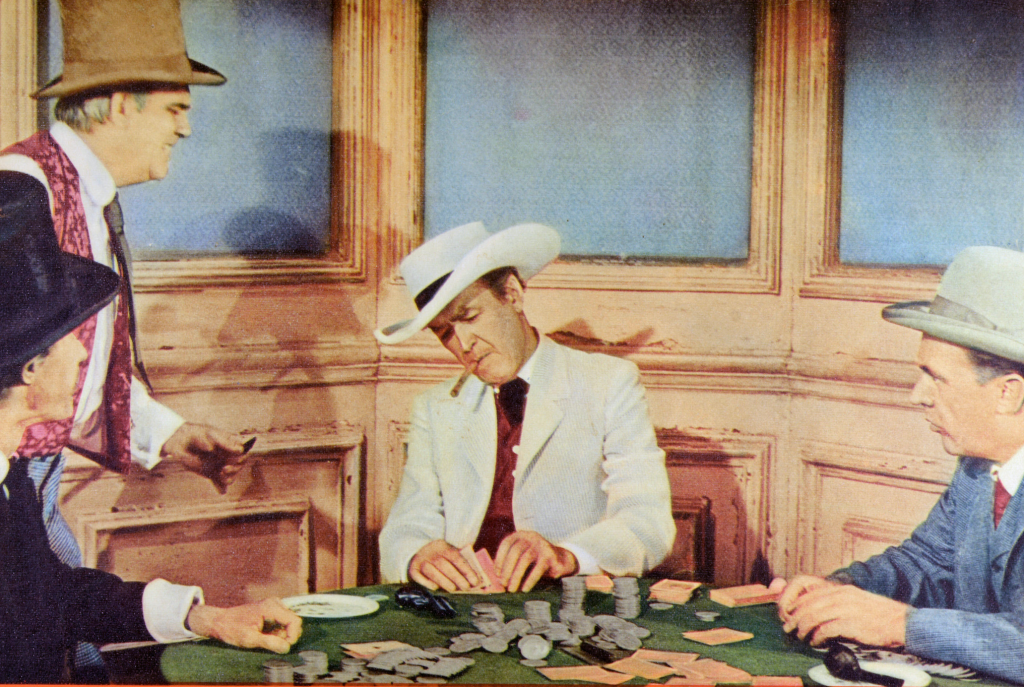 James Stewart peeks at his hand in Cheyenne Autumn
James Stewart peeks at his hand in Cheyenne Autumn
Cheyenne Autumn (1964)
In the midst of an otherwise sobering look at the Northern Cheyenne Exodus, director John Ford paused for a moment of levity when Wyatt Earp (James Stewart) accuses Maj. Jeff Blair (John Carradine) of putting a card up his sleeve. “If you shoot him, we won’t have anyone left to play with,” another player tells Earp. “Good point,” Earp responds, before calling for a fresh deck.
A Big Hand for the Little Lady (1966)
This breezy comedy is essentially one long scene set around a poker table. Henry Fonda and Joanne Woodward play a farm couple who risk their life savings in a high-stakes game. If you think you know how it’s going to end, guess again.
Photography: Images courtesy Library of Congress, Photofest/HBO, Warner Bros., Collection Christophel/Alamy Stock Photo
From our May/June 2020 issue.







